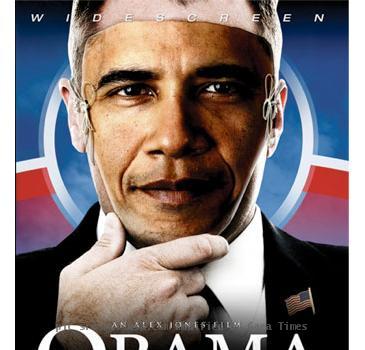In Memphis, Tenn., ex-mayor turns Democratic congressional primary into a referendum on race
By Adrian Sainz, APSaturday, July 24, 2010
Ex-mayor makes Memphis, Tenn. primary about race
MEMPHIS, Tenn. — In the city where Martin Luther King Jr. was assassinated, a once-unbeatable former mayor wants the Democratic congressional primary to be a referendum on race.
Willie Herenton is accusing white two-term incumbent U.S. Rep. Steve Cohen of “trying to act black.” He tells voters in this majority-black city that they “need to come off that Cohen plantation and get on the Herenton freedom train.”
But President Barack Obama has endorsed Cohen, who has an “A” rating from the NAACP and has built support in the black community by supporting civil rights legislation and bringing much-needed federal funding to Memphis schools and hospitals.
“It appears that the former mayor is making race the basis of his campaign, but I don’t think voters are going to go for that at all,” Cohen said. “President Obama’s election proves that voters don’t look at race when making a decision in an election.”
Herenton is betting they will. Though in interviews he’s happy to address issues like improving public schools, creating jobs and bolstering small minority businesses, on the campaign trail he focuses mostly on race and his contention that Tennessee needs “just one” black representative in its all-white congressional delegation.
“I believe that the Constitution includes all of God’s children and that we ought not to be segregated or treated differently because of our race, because of our class or because of religion,” Herenton told voters during a campaign stop, invoking the language of the civil rights movement. “In this great American democracy, people, people, diverse people ought to have representation.”
More than 200 people recently attended a barbecue at Herenton campaign headquarters, and his strategy is resonating with some black voters.
Antonio Parkinson, president of the community group Voices of Raleigh/Frayser, hasn’t decided whom to vote for in the Aug. 5 primary, though he said Herenton’s argument about diversifying the delegation is valid.
“He’s a strong leader,” Parkinson said. “He’s pretty straight-up when it comes to his opinion about issues.”
King’s assassination in Memphis in 1968 tapped into racial tensions and set off riots across the country. Still, when it comes to politics, the city isn’t as focused on candidate race as it once was. A contest for county mayor that pits a black candidate against a white one appears close, and race has not been an issue.
Politically powerful black ministers in Memphis have stayed mum, showing a reluctance to publicly support Herenton.
Four years ago, Cohen became the first white congressman since 1972 to win the heavily Democratic district, which roughly follows the city’s borders.
This isn’t his first racially charged primary. In 2008, he trounced corporate attorney Nikki Tinker, who ran a television ad that asked “Who is the real Steve Cohen?” and wove together pictures of him, a statue of Confederate Gen. Nathan Bedford Forrest and a hooded Ku Klux Klansman. Cohen is Jewish.
In Congress, he has sponsored or supported legislation addressing racial and ethnic disparities in the criminal justice system and apologizing for slavery and Jim Crow segregation.
“Congressman Cohen has done more for African-Americans than a lot of African-Americans in Memphis have done for themselves,” said supporter Tony Nichelson. Nichelson, who is black, said he is disappointed the campaign is focused on race.
Until Cohen took office, the district belonged to the Ford political machine. Harold Ford Sr., who has endorsed Cohen, was elected the state’s first black congressman in 1974. Harold Ford Jr. replaced his dad in 1996, then gave up the seat to make an unsuccessful bid for Senate a decade later.
Cohen dismisses the idea that he could get washed up in the anti-incumbent tide that has already claimed four members of Congress this year.
He has spent about $422,500 on his re-election effort and had $930,000 on hand, according to the Federal Election Commission. Herenton raised just $36,650 through the second quarter, and had $19,336 remaining.
There haven’t been many public polls, although one released Monday and sponsored by WMC-TV showed Cohen far ahead among likely voters.
But Herenton, who is respected for improving the city’s economy, luring corporate investment and helping revitalize downtown, has never lost an election. He spent 18 years as mayor and 12 years before that as superintendent of schools.
He resigned last year amid a federal corruption investigation into whether he used his city office to help his private real estate deals, but the probe has gone dormant and likely is over after last month’s Supreme Court ruling on corruption laws.
Unlike Cohen, Herenton does not have a throng of young campaign workers. He surrounds himself mostly with a small cadre of longtime friends.
Still, at 70, he can be a captivating speaker. The 6-foot-6 former Golden Glove boxer’s charisma and past accomplishments have led some to say he’s still “our mayor.”
Herenton calls Cohen a phony, but the congressman has won loyalty from black voters and politicians. He spoke recently to about 40 black teenagers and adults at a mentoring program at the National Civil Rights Museum, which was the Lorraine Motel when King was shot there during a visit to help striking sanitation employees seeking better pay and working conditions.
Cohen then hosted the opening of a campaign office that included local soul singers and a rap group.
When the four young men started rapping, “Keep goin’ and goin’, with Steve Cohen,” the bespectacled Cohen took off his jacket and danced along, slightly out of rhythm but totally unashamed. The crowd applauded.
Cohen for Congress: www.cohenforcongress.com
Herenton for Congress: www.herentonforcongress2010.com
Tags: African-americans, Barack Obama, Campaigns, Memphis, Municipal Governments, North America, Political Fundraising, Race And Ethnicity, Tennessee, United States



